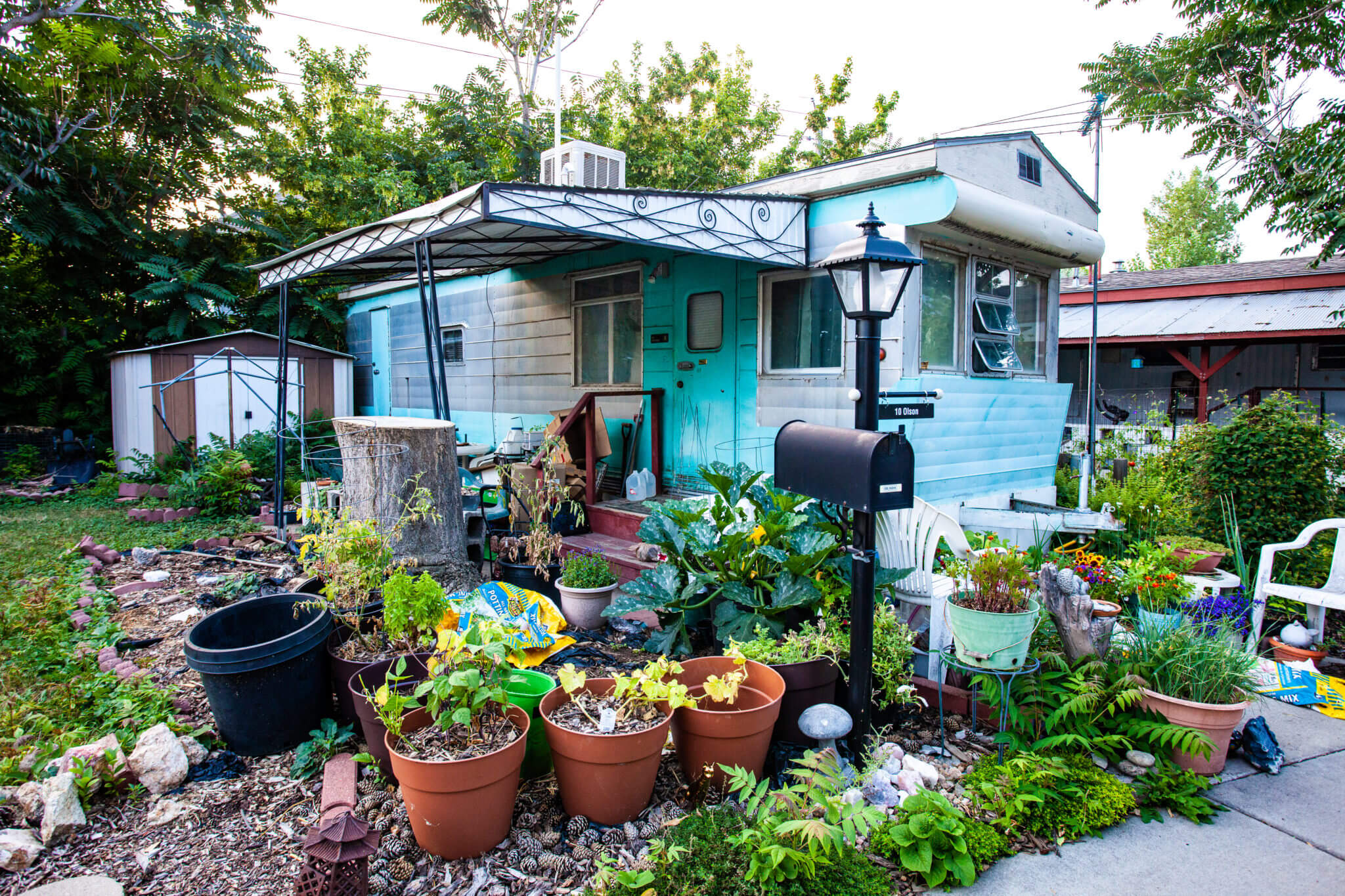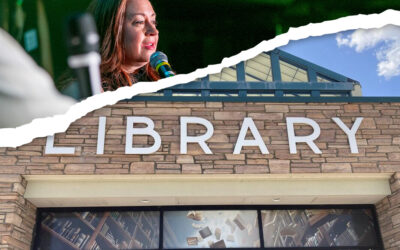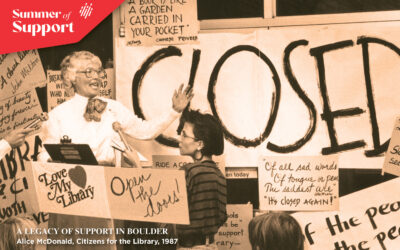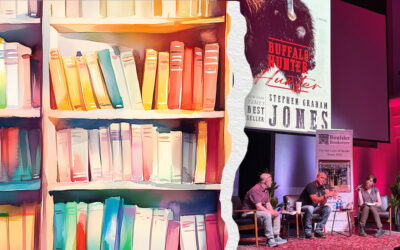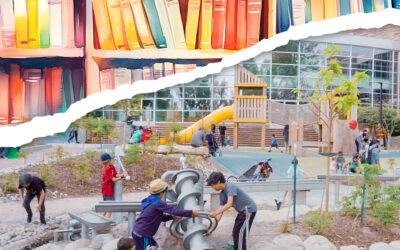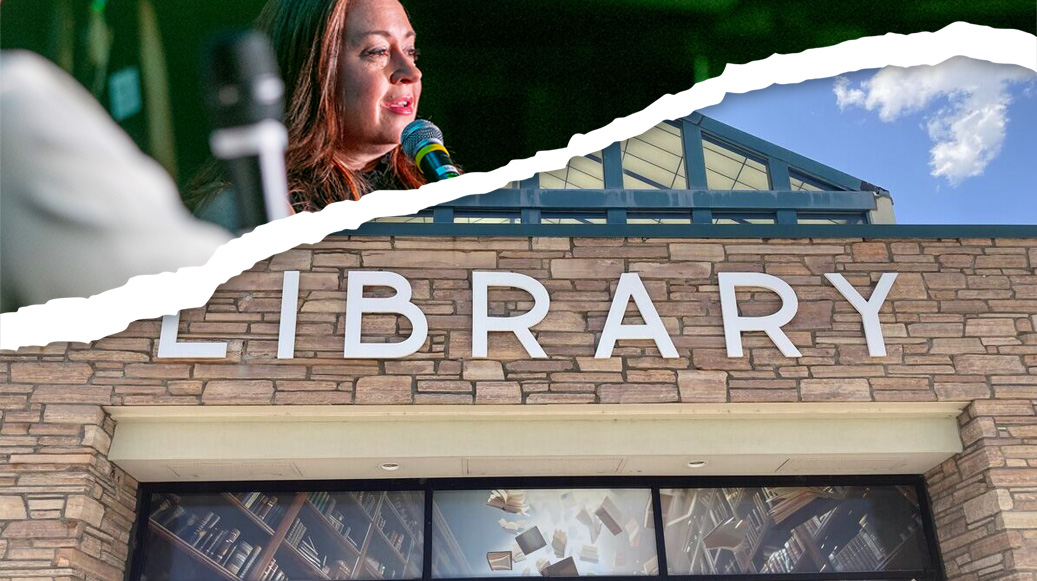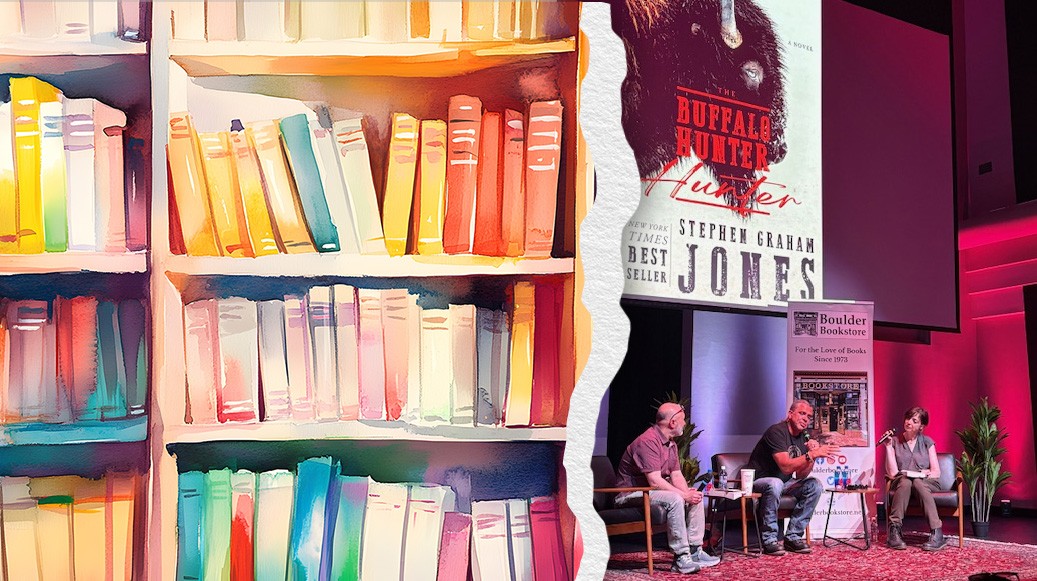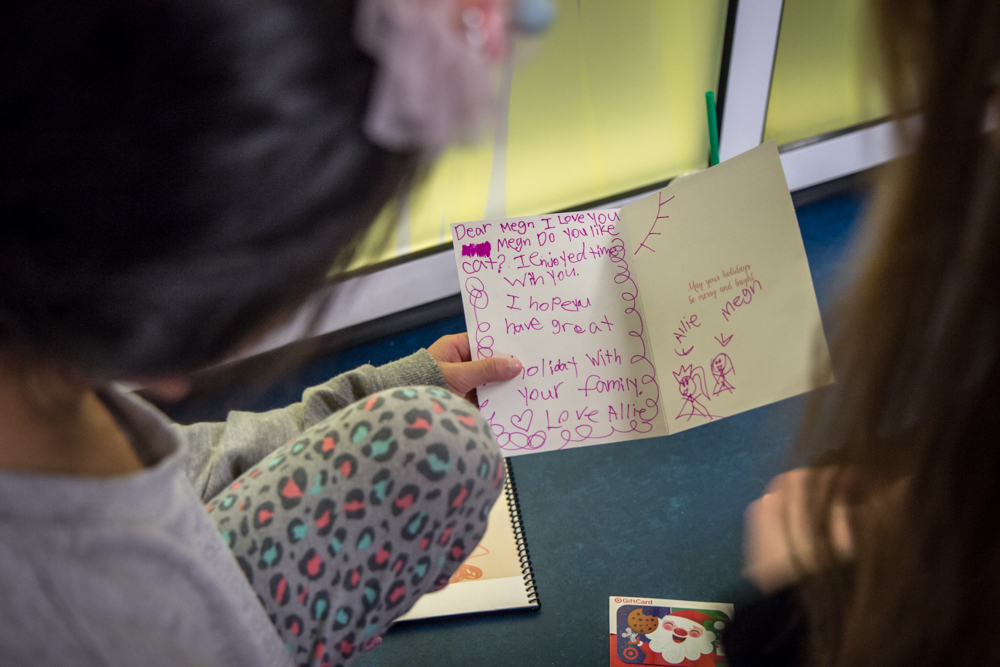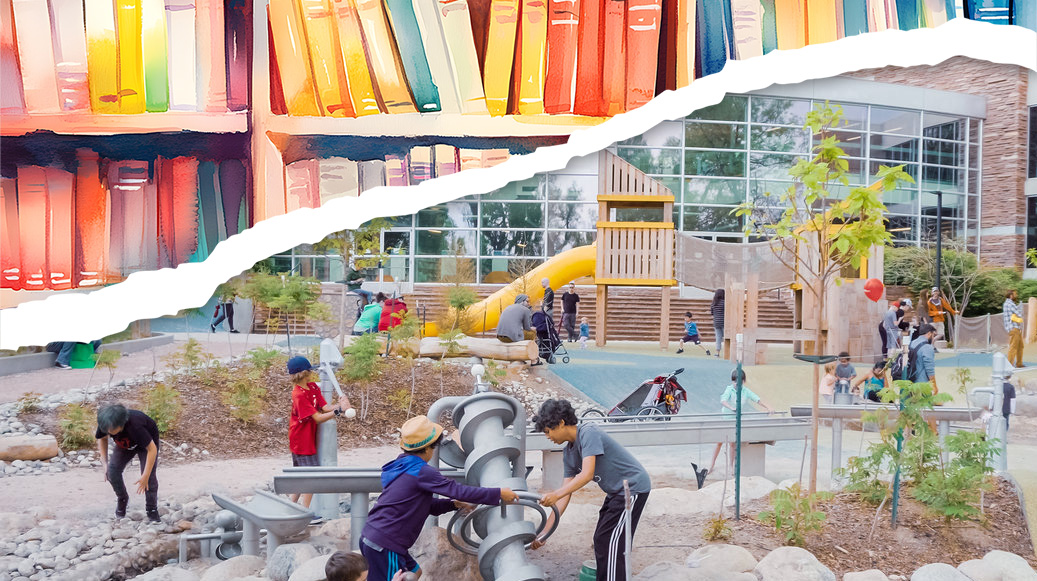Dear Friends –
There’s so much I want to talk with you about this month. We have an amazing set of concerts benefitting our libraries that I hope you’ll consider attending. There’s a World Singing Day and there are Midday Music Meditations to enjoy.
But mostly I want to tell you about Cindy Torres.
Cindy is deeply humble and proud of her community.
She contacted Boulder’s Carnegie Library for Local History and soon was working on an affordable housing archive project, adding mobile home photos and their stories to the collection.

Soon, she realized she’d tapped a vein.
“Wow – You ask people to talk about their homes and they light up,” she said. “It was really good for me. We’re talking about the wealth of low-income neighborhoods. It was uplifting.”
She brought a notepad to her first interview. She recorded her second interview on her phone. She brought a wave recorder to her third interview.
“One person wanted to show me their bathroom. I hesitated, but they insisted. The tile work was gorgeous,” she said.
She contacted Boulder’s Carnegie Library for Local History and soon was working on an affordable housing archive project, adding mobile home photos and their stories to the collection.
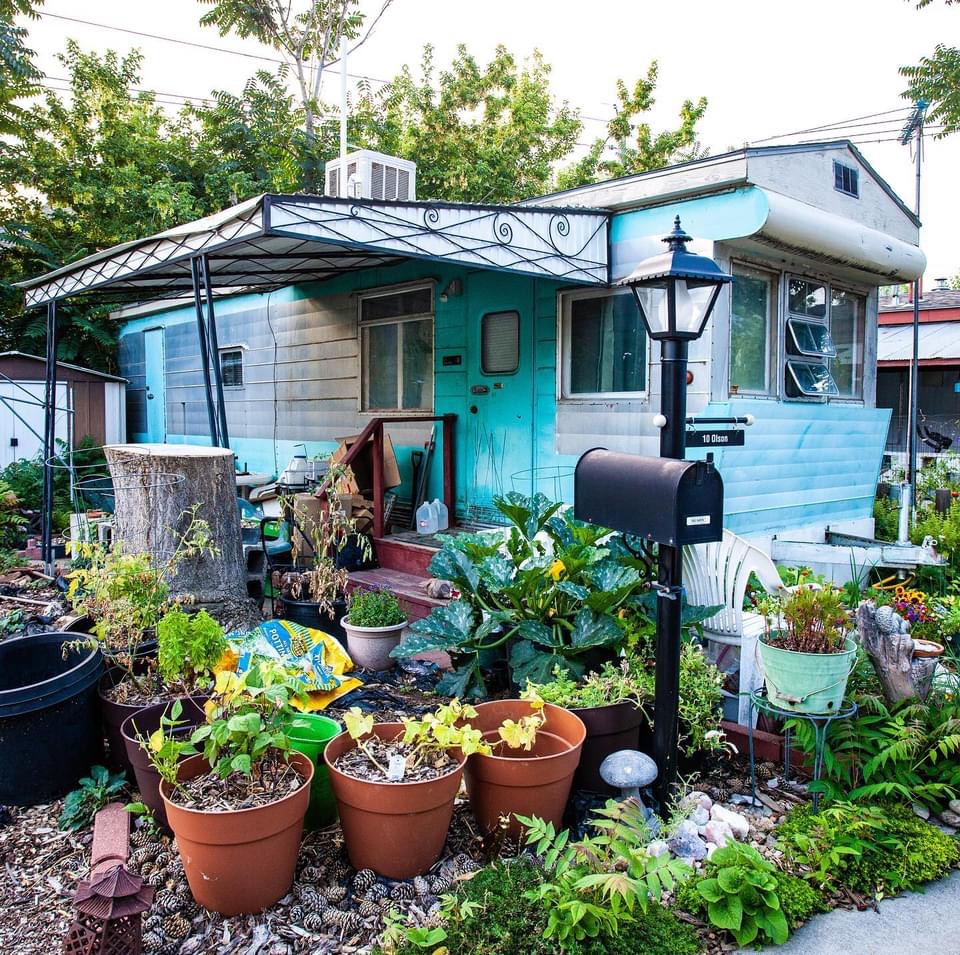
The mobile home of Laurie Olson, who told her story to Cindy Torres.
“I think it’s important for my community and other under-represented neighborhoods to have a place in history outside the “those” people conversations,” Cindy wrote in a social media post announcing her project to her friends. “We are intelligent, creative, diverse ….and we have some pretty cool homes. We may live in mobile homes, but we are permanent members of the Boulder community, and hopefully we’ll go down in history as such.”
So far, Cindy has published two of the stories on her social media channels. We’ll repost them on ours. Cindy’s determined to keep them coming. People all over town are cheering her on, from librarians to CU professors. Her neighbors are the most supportive.
“One person I interviewed said we really need to invite the community into our neighborhoods because people don’t understand who we are,” she said.
Her biggest challenge now is the opposite of the writer’s block she experienced when the project began. People are very interested in low-income housing experiences being told by people who are living the life.
“I feel really good about it,” she said. “I don’t feel stuck. I just can’t keep up.”
Keep scrolling to read two of the stories she’s already captured for Carnegie.
With kind regards,
Chris Barge, Executive Director, Boulder Library Foundation
Carnegie Library for Local History Project Profile: Charles
Planting trees in Mapleton Mobile Home Park for future generations
Charles is a quiet man – reflecting more of himself in the landscape than in conversation. I had mentioned my brief interview with him to a few neighbors, commenting on his 40-year residency in the park – and not too many folks knew much about him.
But if you’ve ever taken a reprieve from the hot sun under one of the many pines lining the west side of the Mapleton Mobile Home Park on Folsom, or around our neighborhood, you’ve likely rested beneath one of his hand planted and cared for trees.
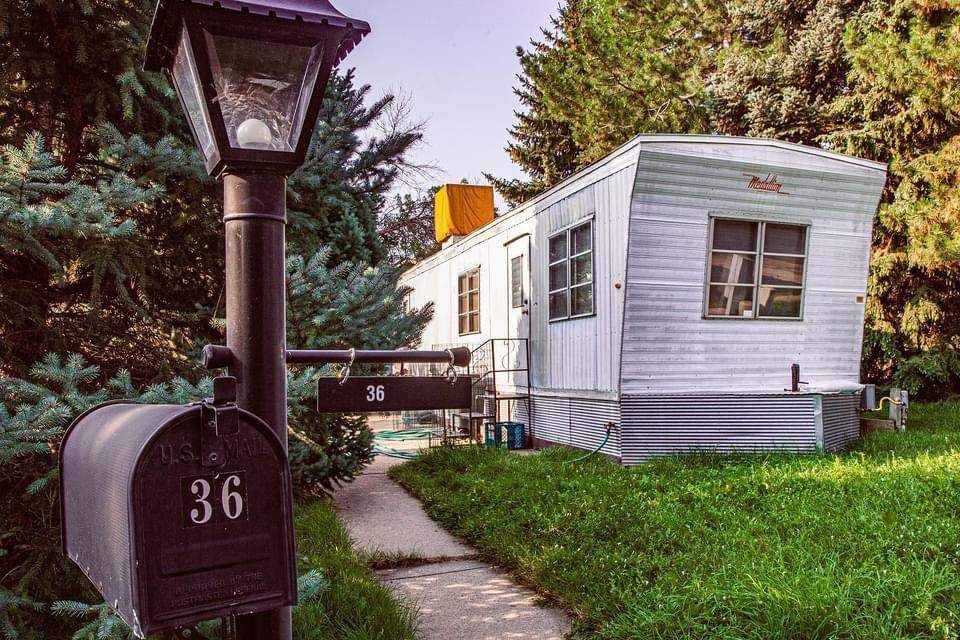
In 1981, Charles moved into Mapleton and started making a life for himself in his 1964 Medallion. “I’ve been fixing it up the way I like it ever since.” He said of his 450 square foot mobile home.

When he first moved into Mapleton, the park was owned by Lou Nutall, who allowed Charles to start planting trees throughout the property. “Most of the trees I planted were Austrian Pines, because they were readily available at the local nursery. Then I spent the next ten years watering them and caring for them until they were established enough to go on their own.”
As many of us in the park know, growing roots in a community provides stability, but it can also be a way to share a little bit of ourselves with others. The opportunity to have a place to grow into and to reflect back on how a place has shaped us and also how we’ve shaped a place, is very much a privilege not often afforded to many under resourced people and families. Keith Basso in, Wisdom Sits in Places, writes, “attachments to geographic localities contribute fundamentally to the formation of personal and social identities.”
Since the interview, I think about Charles often as I sit beneath the Austrian Pine in my front yard – it has become less of a visual location of my house and more a feeling that I am home, and I am grateful to him for helping to grow a place that so many of us call home.
– Cindy Torres
Carnegie Library for Local History Profile: Laurie Olson
Tending to a tiny home since before they were in style
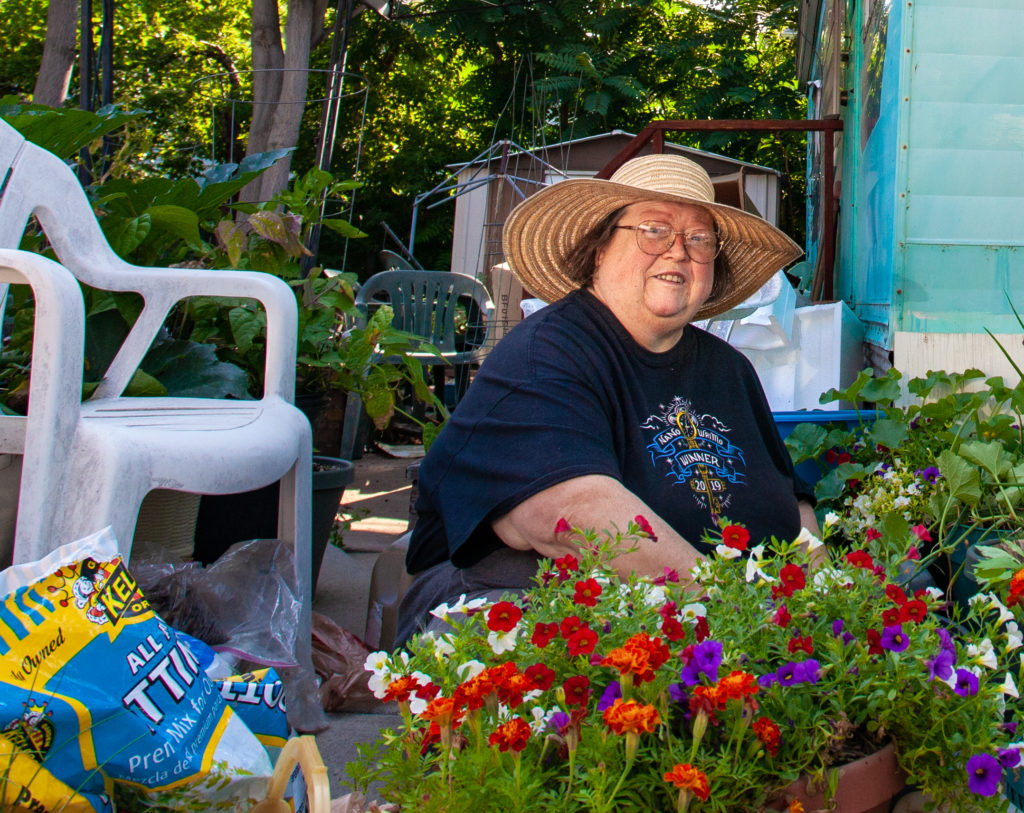
Laurie Olson has been fascinated with mobile homes since she was a little girl. A resident of the Mapleton Mobile Home Park since 1979, which we believe is the record for the longest residency in the Mapleton Mobile Home Park.
Laurie grew up in Boulder and when she was 21, her dad used some of her college fund to purchase the 8 foot wide, 32 foot long 1957 Mountaineer for $2500.00. She’s lived in the 272 sq. ft. – almost 2 bedroom – mobile home for 41 years. Mobile Home living has allowed Laurie to stay in Boulder, where she grew up.
“It’s a unique layout – the bathroom is actually in the closet and is complete with a bathtub.” At 5’3”, Laurie says she can reach up and touch the ceiling.
Once temporary housing in Boulder, mobile homes are now a way of life.
“I love living in it – it’s slightly larger than a tiny home. It’s fashionable now. Though our carbon footprint is smaller than most, mobile homes aren’t the most energy efficient.” She said her energy bill used to get up to $200 a month in the winter – compared to when she moved in and was paying $15 a month. Since the purchase of a new heater, her bill is more manageable, but still high relative to the size.
Once a transitional community of individuals, neighbors in Mapleton have become community oriented. “It’s an affordable way to have individual homes and space for a garden.” She says.
“People look down on mobile homes, but they are really the way to embrace the lifestyle that we’re moving towards and you don’t have to be wealthy – you can be an average Joe.”
– Cindy Torres
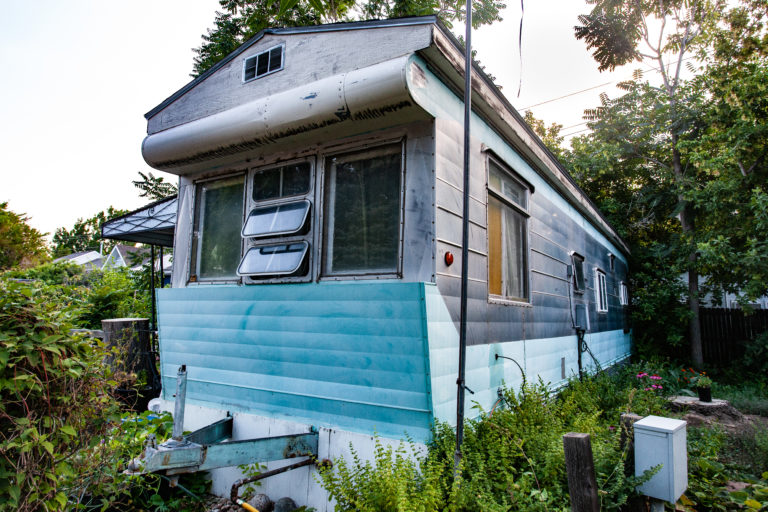
Laurie Olson’s 1957 Mountaineer, 34’x8′
